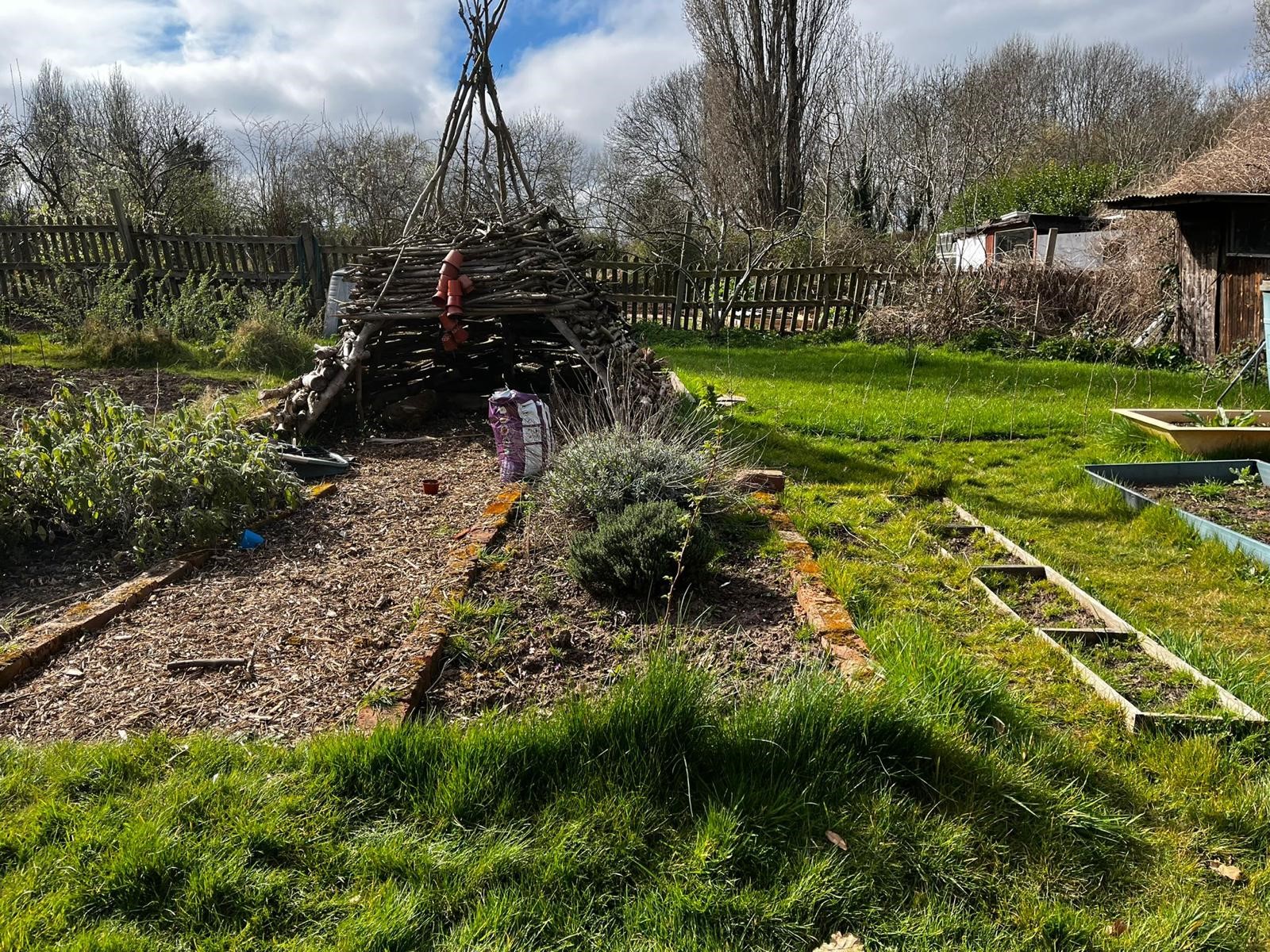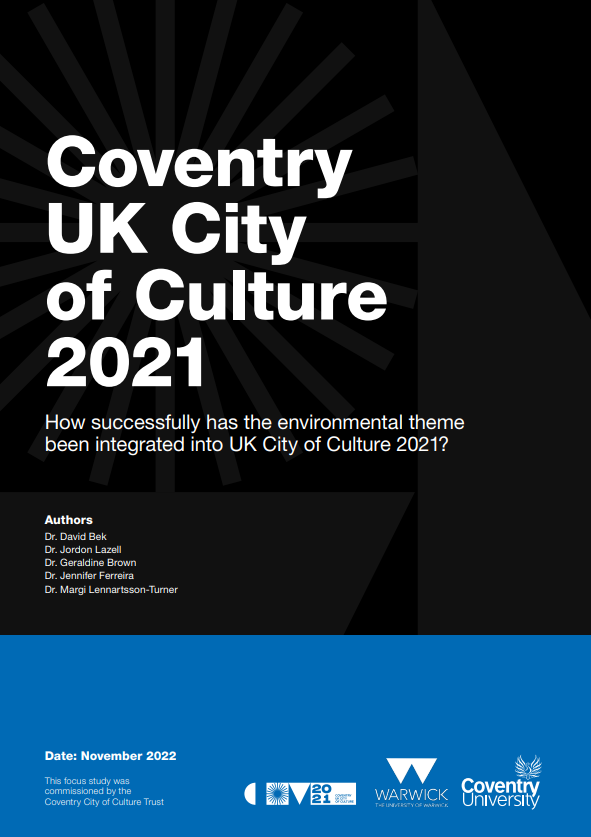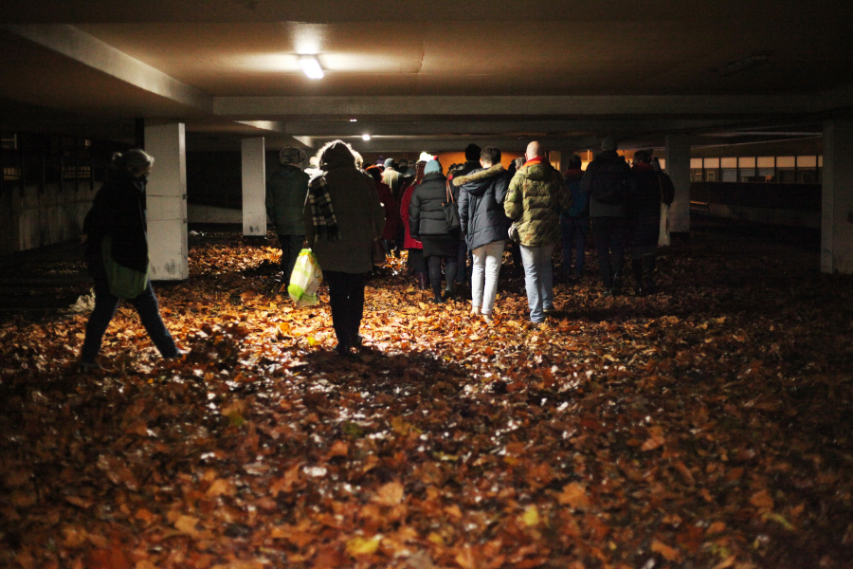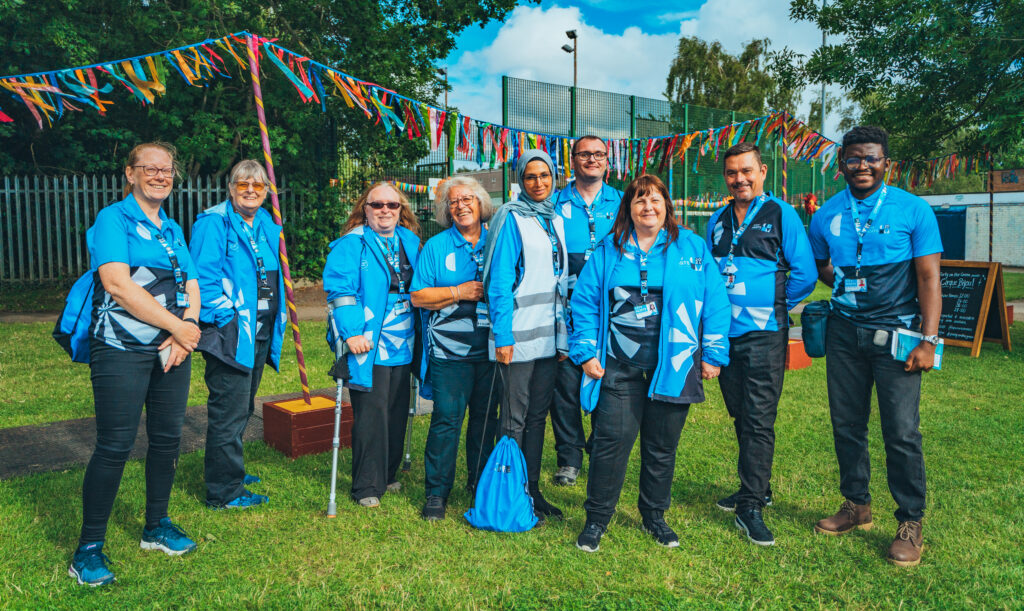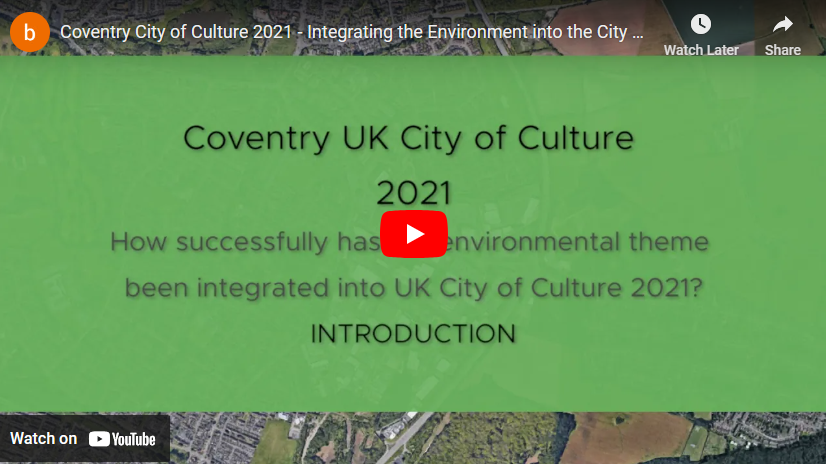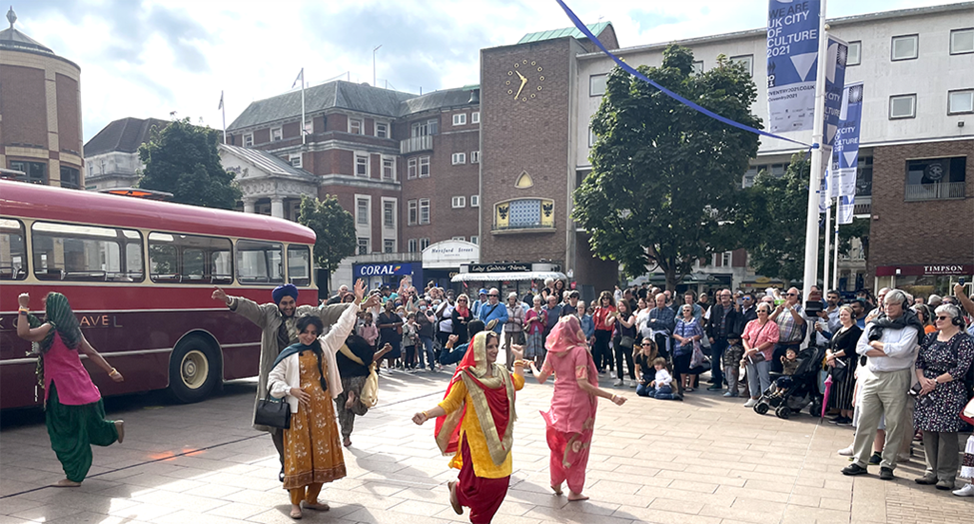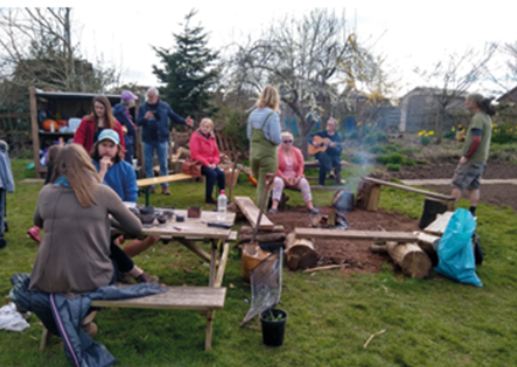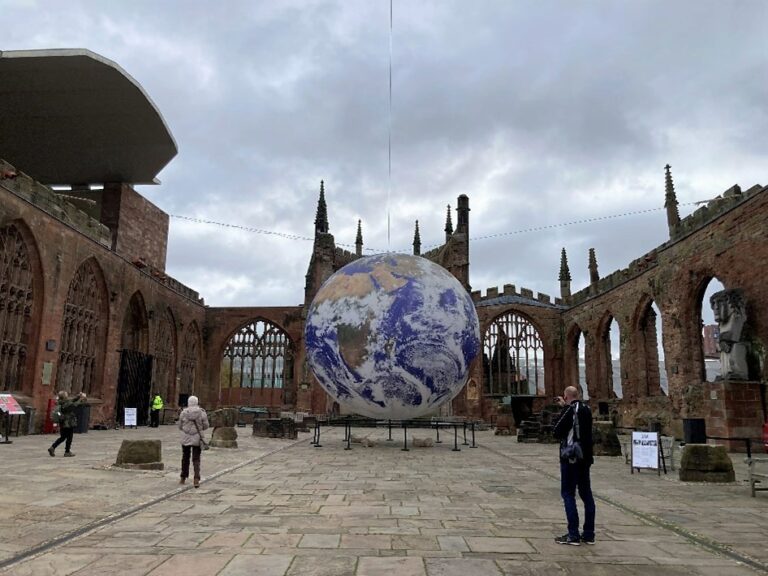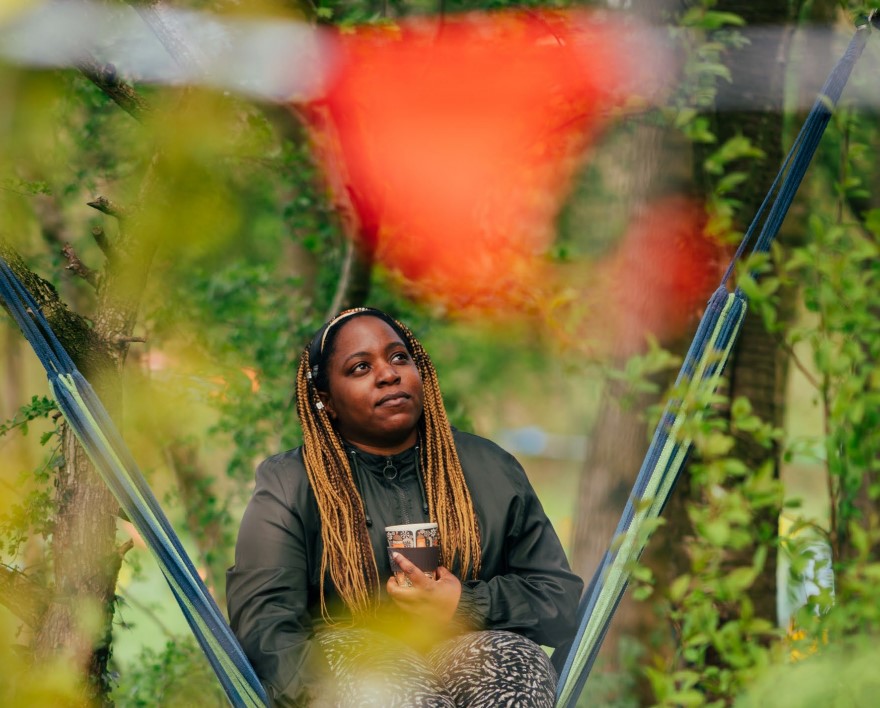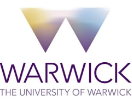Focus Study: Integrating the Environment
Connecting with nature at the allotment (Photograph: Diana Rodriguez)
Report and Webinar
The Integrating the Environment (into UK City of Culture 2021) report was released in February 2023. It is one of a series of focus study reports.
The research team presented its results via a webinar on 8 December 2022 and also across a series of four videos.
Environmental Focus Study Report
Research Question
How successfully has the environmental theme been integrated into UK City of Culture 2021?
Background
In previous UK City of Culture programmes, the natural environment had been largely ignored. Indeed, there was scant reference to natural heritage or green issues in the original bid document for Coventry UK City of Culture 2021 (UK CoC 2021). However, the environment was subsequently incorporated into programme planning, as well as overarching governance and reporting.
The natural environment was therefore granted an explicit position within the cultural spaces of the programme, whilst the environmental impacts of running individual activities also came into focus.
Given the rapidly increasing attention being given to human impacts upon biodiversity and climate, such a focus upon environmental issues in the cultural space was welcomed.
Aims
The aim of this focus study was to provide qualitative insights into how the integration of the environment into UK CoC 2021 was experienced by different stakeholders and with what impacts. More specifically, this study explored how:
- the natural environment became an explicit focus within UK City of Culture 2021
- environmental issues were embedded within the overarching planning, governance and organisational delivery of UK CoC 2021
- people experienced and practised the environment through UK CoC 2021’s activities and events
- behaviours, of organisations, communities and individuals, were influenced and changed during UK CoC 2021
- and what factors affected the delivery of the Green Futures programme within UK CoC 2021.
The focus study provides valuable insights as it draws together the ‘top-down’ perspective, evaluating the UK CoC 2021 programme’s management and delivery and the ‘bottom-up’ perspective focusing upon the programme’s impacts upon the environment and people’s lived experiences.
Approach
The research deployed a mixed method approach to collect data. Secondary data were collected via key documents, such as the initial UK CoC 2021 bid document. Analysis of social media outputs was undertaken to assess levels of engagement with environmental events and activities.
Interviews were undertaken with a range of stakeholders, including those involved in planning and delivering the programme, external partners and members of the public who attended events.
The research team attended more than 20 activities and events during the course of the UK CoC 2021 programme in order to capture participants’ responses. Surveys were undertaken to find out how their attitudes and behaviours were shifted as a result of exposure to the UK CoC 2021 programme.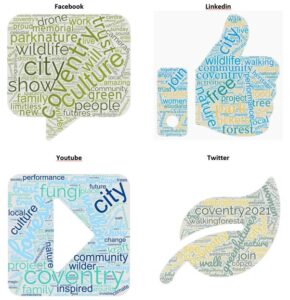
Findings
Green Futures events delivered learning opportunities and encouraged people to get involved, make new connections and engage directly with nature and the environment. These events ignited personal interests and raised people’s awareness of a wide range of environmental issues.
Participants made pledges on what they would do differently, shared their intentions to revisit nature sites regularly, and take up a new activity such as foraging wild plants in their local area or growing fruits and or vegetables.
Recommendations
The focus study report made a series of recommendations:
- It is important that cultural events ensure that environmental governance and programming are built-in from the very start.
- Objectives in relation to environmental goals need to be clearly defined and articulated from the outset.
- Overarching environmental tools, such as a Green Code, need to be mainstreamed within the operational practices.
- Continuity of staffing within the overarching delivery body is vital.
- If behavioural change is an objective, then clear pathways for influencing attitudes and behaviours need to be developed and implemented.
- The programme should reflect the full remit of the environmental concerns and interests held by local citizens.
- Key partners need to be identified from the outset and relationships nurtured. The implementation of smooth and efficient administrative processes for formalising partnership arrangements are critically important.
- Activities should be promoted outside of existing environmental networks.
- It is vital that integrated and timely marketing strategies are implemented.
Conclusions
Events within the Green Futures programme acted as a vehicle for re-focusing attention on nature and green-related issues across the city. Participants appreciated the impact that the connection with nature had on them (such as benefits to their mental health) and their families.
UK CoC 2021 demonstrated how a community-focused approach − supported by adequate resources and co-operation between local communities, green and/or environmental organisations and key local decision-makers − can increase engagement in nature and wider green issues.
Overall, UK CoC 2021 created an opportunity to foreground a ‘Green Agenda’ for the city, linking communities with nature and the environment creating hope that the City of Culture experience would leave an enduring Green legacy.
Acknowledgements
The research teams were based at the Coventry University Centre for Business in Society and Centre for Agroecology, Water and Resilience research centres. The focus study was led by Professor David Bek; his fellow researchers were Dr Jordon Lazell, Dr Geraldine Brown, Dr Jennifer Ferreira and Dr Margi Lennartsson-Turner.
This focus study was commissioned by the City of Culture Trust and supported by the monitoring and evaluation team.
Links
The authors of this focus study report wrote a blog post entitled Using Culture For Creating A Greener Future For Coventry.
The focus study was referenced in the Evaluation of the Green Futures Programme report submitted to the Heritage Lottery Fund.


